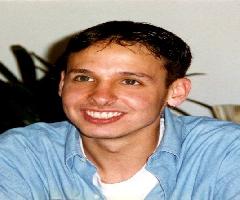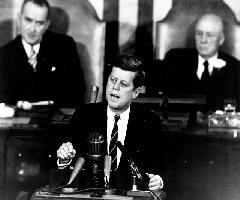Give an African NGO a fish and help cover administrative costs, teach a destitute village how to irrigate and you have the Millennium Villages Project. Part of the Earth Institute at Columbia, the project uses donations to implement low cost solutions that address survival issues for 12 villages in continental Africa. With the direct assistance of experts, the idea is to bring self-sufficiency to these communities and expand Millennium’s reach into the depths of global poverty.
One of these experts, Dr. Steven Syrop of Chappaqua, made his first trip to Ethiopia in September. Associate professor of clinical dentistry at Columbia,
Among the 40% of the world that lacks running water, he says, “a dental chair and a light - that's not going to happen." Neither is toothpaste but preventive and emergency dentistry remains a realistic goal to Millennium.
Along those lines, Millennium hopes to put communities on the first rung of the survival ladder, feeling that self-sufficiency follows. In the case of dentistry, the basics of oral hygiene has already been established.
When water and money is sparsely available, even a toothbrush is out of reach. Instead, communities use something called a chew stick. Made from local vegetation, one side of a blunted twig exposes fibers that can scrape bio-film from teeth. This method dramatically reduces dental disease, he says.
Like anywhere, problems and solutions intersect. In Koraro, life has always meant farming all day - and hope you can feed your family. Soil depletion complicates matters but change has come cheaply by introducing fertilizer in another Millennium Village. In Sauri, Kenya an eight-fold increase in crop production has resulted this year, according to Millennium’s website.
That village of 5000 now ensures children a daily meal, which is served at school. Enrollment jumped to 100% and chew stick instruction will be part of the curriculum.
The same is in store for Koraro, although villagers own all change. The information is provided and villages use as they see fit. From a dental perspective, a killer toothache can happen anywhere. Only in America, within 24 hours it can be addressed. In Ethiopia, where there are only about 44 dentists, "you just suffer," says Dr. Syrop of the rural inhabitants.
Still, Millennium has no plan to provide emergency medical or dental care. There’s also no plan to train indigenous doctors or dentists because payment would be impossible.
Millennium’s model involves a high school educated healthcare extension worker with a year of training. Koraro has two in training currently and even this small degree of knowledge can make a difference.
For example, according to Josh Ruxin, director of Millennium in Rwanda, there is one death per 100 for expectant mothers and one child in seven dies before reaching five. Spacing out pregnancies can reduce those number by half, he says.
Information that can be provided by the healthcare worker. This and bed nets can change the whole shape of the villages, says Dr. Syrop. At a cost of five dollars, the nets keep the mosquitoes away at night and will reduce malaria by 80%, he says.
Advances in water delivery, low cost electricity and transportation can create sustainability, according to Millennium’s founder, Jeffrey Sachs. In his book, “The End of Poverty,” Dr. Sachs visualizes a better use for billions in aid that never ends. Using Sauri as an example, Dr. Sachs projects in his book that a ten year investment of $3.5 million would enable farmers to grow enough food to feed their families, enter the market and become sustainable.
A worldwide aspiration but individuals like Dr. Syrop keep themselves focused to their community. "We go there and identify simple problems" he says. Crop production is up, malaria is down, clean water is on the way, and Koraro’s survival is assured in five years, he predicts


